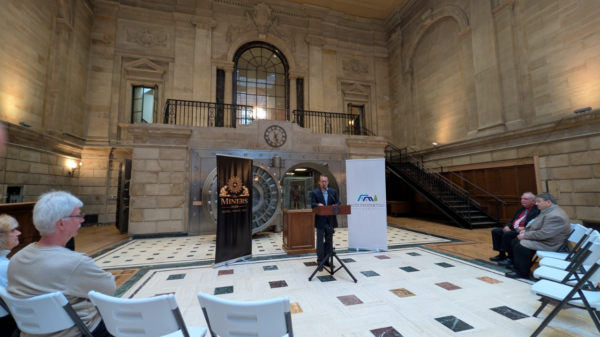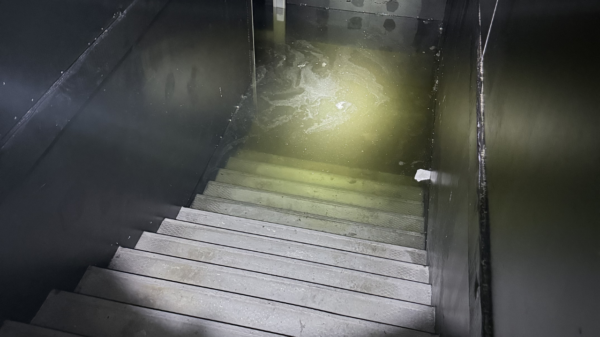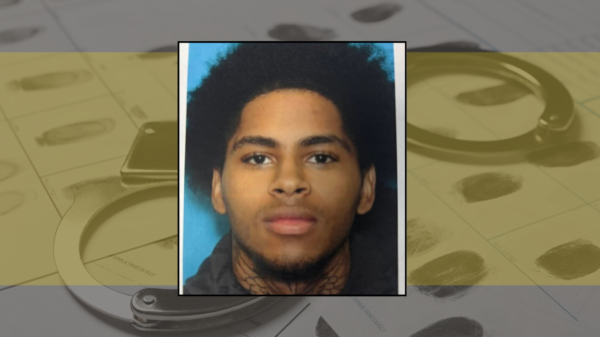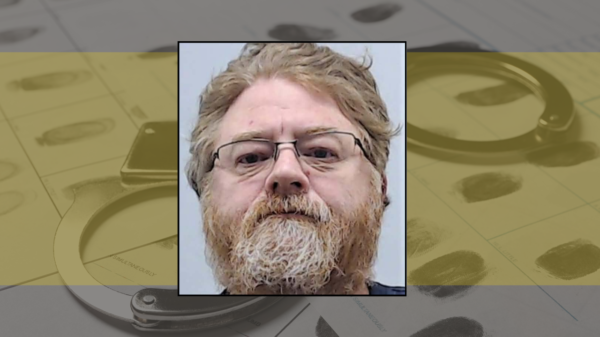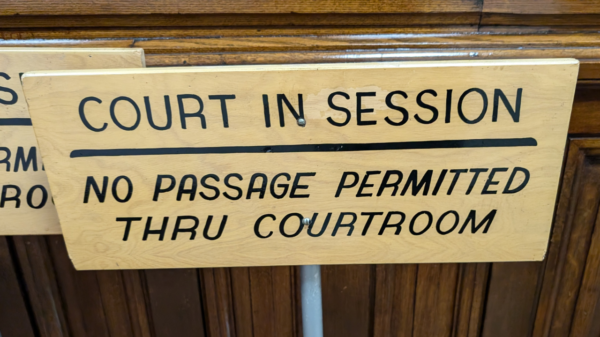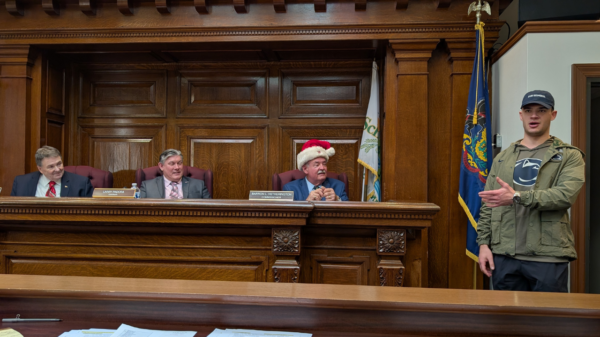The attorney representing Schuylkill County Commissioner George Halcovage in the federal sexual harassment lawsuit against him believes Clerk of Courts Maria Casey is hiding evidence on her work hard drive and phone.
Gerard Geiger, who represents Halcovage, filed a formal response to Casey’s Motion to Intervene in that federal lawsuit. He says Casey’s motion is merely “a forum to attack Halcovage and create a news story,” according to court papers The Canary has obtained. Later, he calls her an instigator in bringing up the allegations against Halcovage and has “political motivations” behind it.
“The digital evidence Casey seeks to hide is information about her communications with plaintiffs about Halcovage,” Geiger writes in his response. “Casey does not have standing to oppose the production of information on county-owned computers where she has no expectation of privacy.”
That lawsuit is filed by 4 anonymous Jane Doe plaintiffs who all claim to work at Schuylkill County Courthouse. They allege they’re victims of unwanted sexual advances and suggestive dialogue over the course of about a decade. They’ve sued Halcovage for that behavior and several County officials for being complicit in it for failing to intervene to stop him.
Schuylkill County government is also named as a defendant in the lawsuit, which was originally filed in Spring 2021.
Casey is Hiding Evidence, Halcovage Attorney Claims
Prior to and since the lawsuit was filed, Casey has been a vocal advocate for Halcovage’s ousting as County Commissioner, him most recently serving as Chairman of the board. She’s often outspoken at public meetings and sometimes accuses him of behavior she finds offensive and grounds for his removal from office.
A little over a month ago, Geiger filed a discovery motion to obtain several hard drives and County-owned mobile phones as evidence in Halcovage’s defense against the lawsuit. Among those hard drives requested were the ones assigned to the Jane Doe plaintiffs and Casey.
Casey objected to this request and filed a Motion to Intervene. She believes Halcovage has no right to ask for it as she’s not involved in the lawsuit directly. And she’s trying to block Halcovage’s access to them.
Based on the information presented in Geiger’s response, he says they’re not Casey’s hard drive and mobile phone to decide if he should get a copy of them. They’re owned by the County. It’s up to the County to decide. And Geiger indicates in his response to Casey’s motion that the County has already decided to give up what he wants.
What’s Casey Hiding?
So, what’s on these devices that’s so valuable to Halcovage’s case? Geiger believes there are several key pieces of information saved on Casey’s hard drives and/or phone.
First and foremost, Geiger and Halcovage believe or are hoping to find information that will vindicate the Commissioner in this lawsuit. The response to Casey’s motion indicates they believe communications between the Jane Doe plaintiffs and Casey are stored or may have been deleted.
“Casey has essentially admitted that she is in possiession of plaintiffs’ statements about Halcovage, which Halcovae nneds to defend himself,” he writes. “Halcovage and his experts need their expert to evaluate whether Casey may have deleted information involving plaintiffs that will vindicate Halcovage. In her intervention petition, Casey has essentially admitted that she has information on her office computers relating to the Does’ claims against Halcovage. Halcovage is entitled to see this.
“Casey has inserted herself into the plaintiffs’ claims, admits to having relevant information, but now seeks to conceal it. If the information is damning to Halcovage, she needs to produce it. Logically, she would, if that supported her petition,” Geiger adds.
Also among the items potentially saved on those devices in testimony. Geiger says Casey admits to providing testimony on at least 2 different occasions to people investigating the claims against Halcovage.
First, is the investigation conducted by Pennsylvania Attorney General Josh Shapiro’s office on possible criminal charges against Halcovage. That investigation resulted in no charges being filed.
In his response, though, Geiger writes, “Halcovage cannot confirm whether and why Casey was interviewed but now that she admits to having provided such information, her communications are a discoverable matter and Halcovage is entitled not just to obtain what evidence she may have placed on County-owned computers, but to depose her.”
Casey may have also provided testimony to the Pennsylvania House Subcommittee on Courts that’s investigating Halcovage for possible impeachment, Geiger alleges.
“Given Casey’s petition and her claim to have provided testimony to the subcommittee, there is proper reason to believe that she saved discoverable information on the County-owned hardware,” he adds in his response.
He also argues that Casey’s hard drives are subject to his discovery motion because she’s using them to harm his reputation. Geiger mentions the “Casey’s Corner” videos that are sometimes posted on Casey’s Facebook page for her office.
“Casey has inserted herself into an effort to have Halcovage removed from office. She has placed anti-Halcovage videos on her Facebook page, which she films in the County Courthouse during hours she should be working on County business,” Geiger contends. “Casey uses the resources of the County to criticize Halcovage. In this petition, she admits she is using County-owned computers in her efforts to have Halcovage removed from office. This is all discoverable information.”
Subscribe to Coal Region Canary
Get email updates from Coal Region Canary by becoming a subscriber today. Just enter your email address below to get started!Support Coal Region Canary
Like our reporting and want to support truly local news in Schuylkill County? Your small donations help. For as little as $5, your contribution will allow us to cover more news that directly affects you. Consider donating today by hitting the big yellow button below ...




